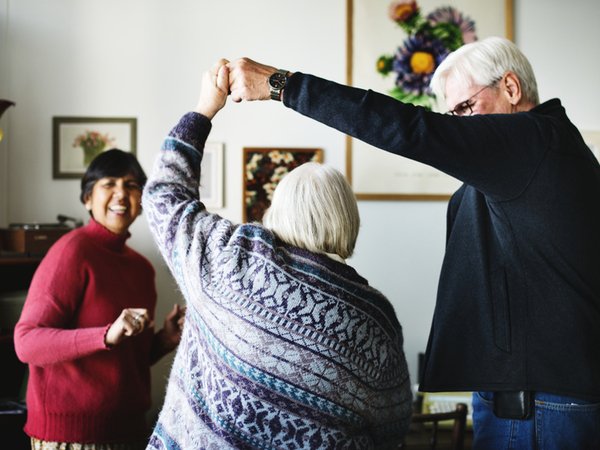Shortly after becoming a hospice chaplain nearly eight years ago, I realized it was always difficult and sometimes impossible to communicate in the traditional sense with some patients who had severe dementia. I really wanted to reach them, to bring them a sense of joy, well-being and comfort at the end of their lives. Most of all, I wanted them to know they were loved.
Words didn’t always work. In fact, I could tell some patients were frustrated because they couldn’t engage in a typical conversation and were silenced by their disease.
Though they may have understood some of what was being said, it was impossible for them to respond with words. Our patients were having their symptoms managed in a safe and secure environment, but I also wanted to make their last days as rich and loved-filled as possible.
I prayed about it and waited — for an answer, for direction. That answer came in a “still, small voice” — the words the Hebrew prophet Elijah used to describe his encounter with God.
One day, I brought my hymnal and flute — I played 40 years ago in the Windham (Maine) High School Band — to a visit and started playing those old hymns. In many patients, I could see the music brought back old memories that were just waiting to be set free, like a bird from a cage.
I played many hymns my patients had sung in their younger, healthier days, when they were active in church, raising families, going to work, cleaning the house and just living their lives. Music always takes us back to different chapters of our lives as we remember what we were doing when we heard or sang a particular song or hymn. Those memories are powerful, moving and miraculous.
My first experience with the miracle of music in hospice happened several years ago with a patient who could only say a few simple words, such as “yes” and “no,”
and who rarely strung sentences together. However, she had a history of being quite active in her church when she was younger. I started playing “How Great Thou Art” on my flute.
Recognition sparked in her eyes. The music worked as a mental backhoe, digging up memories long encrusted by dementia.
Then I started singing the words. She joined in and knew all the words to the first verse. I was amazed and got rather daring at this point. So, while I was looking at the hymnal with the words in front of me, I sang the second verse. So did she — only she was not looking at the hymnal. Then, feeling even more inspired, I sang the third and fourth verses from the hymnal and so did she. The words to the hymn were written on her heart, rather than on a piece of paper.
Music Transends
Music Transends
“Music is a powerful way to tap into memories and connections we may not always be able to access consciously,” says Dawn Burley, LCSW, a Compassus social worker in Scarborough, Maine.
“We see so many of our patients singing or tapping along with their favorite songs, even when they are unable to fully access communication skills or to engage socially in the present. Additionally, and perhaps most importantly, it brings so many people joy,” she says. “It is a pleasure that allows our patients to transcend their current circumstances, even if only partially or only for a short time.”
I also experienced the phenomena of musical aptitude, despite disease, with my own mother, Kathryn Althea Genthner, who died in 1998 after being diagnosed with dementia. Music was very much a part of her; at age nine she played the piano in her rural Baptist church and, later in life, she wrote many original pieces having only three months of piano lessons.
As her dementia progressed and her mental storm grew in intensity, she still struggled to play the old hymns for me and my father. Before she had several strokes we would gather together around the piano and sing hymns such as “Power in the Blood” — my favorite — as my father sang the melody and I worked to sing harmony. When she became unable to sit on the piano bench, my dad bought her a portable keyboard to play as she sat on the couch.
We were amazed that she could still play, though not with the precision and timing as before, but the essence of the music — and of her — remained. Despite adversity, disease and decline, she retained the soul of the music in her fingers.
Music touches the soul of all people, despite their age, income or mental ability. It is a feeling, an energy, that not only fills our ears with notes but refreshes our being like living water.
We respond to music not only physically, but soulfully. In responding to our call to bring comfort, well-being and quality of life to those at the end of their lives, music can really be ‘soul food’ to patients who are hungry.
Rev. Dr. Cathy Genthner is chaplain and bereavement coordinator for Compassus in Scarborough, Maine.




